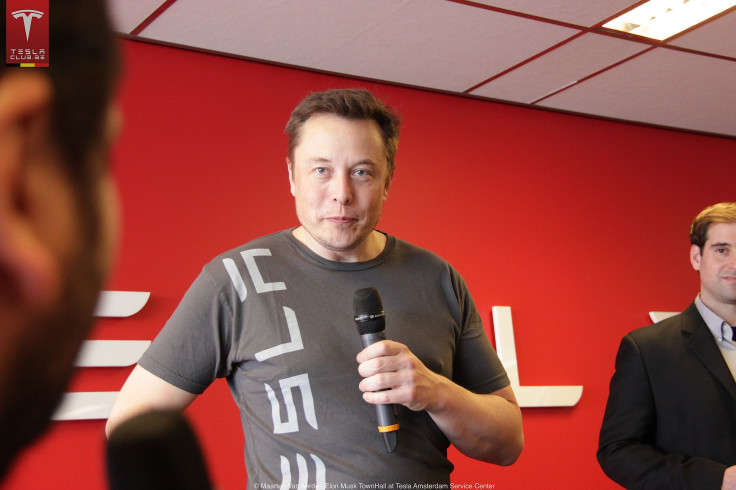
Elon Musk's position as the world's richest person is in jeopardy following a court decision to invalidate his $55 billion (£43.33 billion) compensation package from Tesla.
On January 30, a Delaware judge struck down Musk's $55 billion (£43.33 billion) Tesla pay package, posing a threat to the business magnate's standing as the richest person in the world.
The decision could lead to a significant drop in Musk's estimated net worth of around $205 billion (£161.51 billion) as of January 31.
According to a report by Bloomberg, Musk's pay package was valued at approximately $51.1 billion (£40.26 billion) at the time of the stock market's close on Tuesday, January 30. The report further highlights that this particular pay package stands out as one of Musk's most valuable assets.
In essence, this pay package holds a significant value among all the assets Musk owns or has access to. The report emphasises its considerable impact on his overall financial position.
Without the compensation plan, Musk's net worth is expected to decrease to approximately $154 billion (£121.33 billion), resulting in his lower ranking on the list of the world's wealthiest individuals. However, it is worth noting that Bloomberg's Billionaires Index still lists him at number 1.
Last year, Musk led the list of the world's wealthiest billionaires with a net worth of $187.1 billion (£147.41 billion), according to Bloomberg. Despite personal turmoil, his net worth soared by $100 billion (about £78 billion) by the year's end.
How Tesla pays Elon Musk
Musk doesn't receive a traditional salary from Tesla like most employees. Instead, His compensation revolves around receiving stock options, which enables him to buy Tesla shares at a predetermined price. Notably, there are 304 million stock options in 12 distinct groups called tranches.
Each tranche becomes available for purchase when Tesla completes specific performance goals such as achieving specific financial targets or increasing Tesla's market capitalisation (total value). So, it is safe to say that Musk's pay is directly tied to Tesla's success.
In 2018, Tesla gave Musk a big stock-based pay package to keep him focused on the company, but the tech billionaire hasn't used these options yet, according to a Bloomberg report.
Tesla shareholder Richard Tornetta sued Musk and the automobile company over the pay plan when it was put in place. Tornetta argued it was "beyond the bounds of reasonable judgement". Tornetta also claimed that Musk had undue influence over the decision.
Tuesday's decision comes over a year after a Delaware judge heard the trial. Tornetta's attorney, Greg Varallo told The New York Times the shares would be cancelled. Tesla can also still appeal the ruling.
Elon Musk suggests Tesla could leave Delaware
While it is unclear how the ruling will be implemented, Musk has expressed his frustration in a post on X, writing, "Never incorporate your company in the state of Delaware".
Never incorporate your company in the state of Delaware
— Elon Musk (@elonmusk) January 30, 2024
In a separate post, the Tesla CEO asked his X followers to share their opinion on whether the EV company should change its state of incorporation to Texas. At the time of writing, over 87 per cent of netizens wanted Musk to move Tesla out of Delaware.
Should Tesla change its state of incorporation to Texas, home of its physical headquarters?
— Elon Musk (@elonmusk) January 31, 2024
Two employment attorneys told Business Insider that Musk and his EV company had multiple options on how to proceed. Angela Reddock-Wright, an employment attorney and mediator in Los Angeles, suggests the board could consider negotiating a payment plan that satisfies everyone.
"If they're thinking about the greater good of the company, they'll want to resolve this outside of court action and further litigation," she said, noting that this would be the most typical route. She said dragging it out in court could have a bad impact on Tesla's stock price.
Tesla may appeal if they fail to come to an agreement outside court. Musk, who was recently criticised by legendary short-seller Jim Chanos for trying to gain more control of Tesla, is more likely to appeal straight away.
Let me get this straight…Elon wants another 450M new shares($100B)or conversion of existing shares into super-voting status, or he will “prefer to build products outside of Tesla”?! I know this is Elon, but you do realize how outrageous this is, right? What say you, $TSLA board? pic.twitter.com/zGFVTNzP8g
— Diogenes (@WallStCynic) January 16, 2024
"He, out of principle, may pursue this just to try to establish, perhaps from his perspective, that the compensation proposal was fair," Reddock-Wright said. "He's someone who likes to prove a point".







